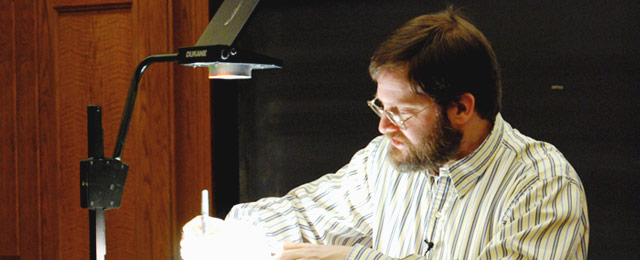Online courses directory (273)
Курс посвящен изучению базовых законов электростатики и магнитостатики.
A presentation of the fundamentals of modern numerical techniques for a wide range of linear and nonlinear elliptic, parabolic and hyperbolic partial differential equations and integral equations central to a wide variety of applications in science, engineering, and other fields. Topics include: Mathematical Formulations; Finite Difference and Finite Volume Discretizations; Finite Element Discretizations; Boundary Element Discretizations; Direct and Iterative Solution Methods.
This course was also taught as part of the Singapore-MIT Alliance (SMA) programme as course number SMA 5212 (Numerical Methods for Partial Differential Equations).
This course surveys a variety of reasoning, optimization and decision making methodologies for creating highly autonomous systems and decision support aids. The focus is on principles, algorithms, and their application, taken from the disciplines of artificial intelligence and operations research.
Reasoning paradigms include logic and deduction, heuristic and constraint-based search, model-based reasoning, planning and execution, and machine learning. Optimization paradigms include linear programming, integer programming, and dynamic programming. Decision-making paradigms include decision theoretic planning, and Markov decision processes.
This course studies basic optimization and the principles of optimal control. It considers deterministic and stochastic problems for both discrete and continuous systems. The course covers solution methods including numerical search algorithms, model predictive control, dynamic programming, variational calculus, and approaches based on Pontryagin's maximum principle, and it includes many examples and applications of the theory.
This course provides an introduction to the transportation industry's major technical challenges and considerations. For upper level undergraduates interested in learning about the transportation field in a broad but quantitative manner. Topics include road vehicle engineering, internal combustion engines, batteries and motors, electric and hybrid powertrains, urban and high speed rail transportation, water vessels, aircraft types and aerodynamics, radar, navigation, GPS, GIS. Students will complete a project on a subject of their choosing.
This course was created for the "product development" track of MIT's System Design and Management Program (SDM) in conjunction with the Center for Innovation in Product Development. After taking this course, a student should be able to:
- Formulate measures of performance of a system or quality characteristics. These quality characteristics are to be made robust to noise affecting the system.
- Sythesize and select design concepts for robustness.
- Identify noise factors whose variation may affect the quality characteristics.
- Estimate the robustness of any given design (experimentally and analytically).
- Formulate and implement methods to reduce the effects of noise (parameter design, active control, adjustment).
- Select rational tolerances for a design.
- Explain the role of robust design techniques within the wider context of the product development process.
- Lead product development activities that include robust design techniques.






















